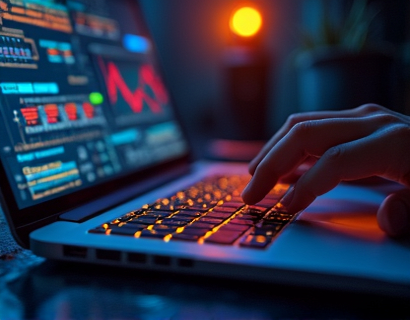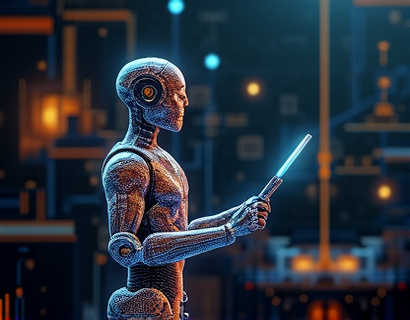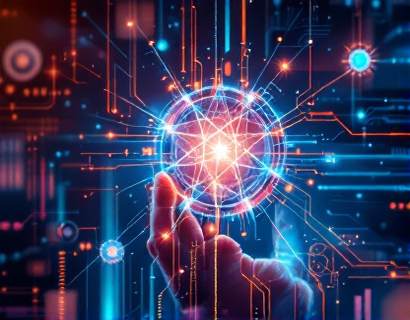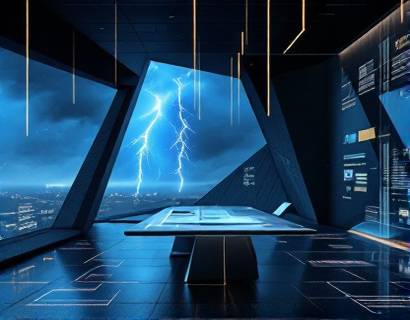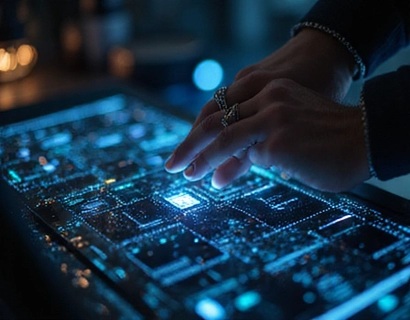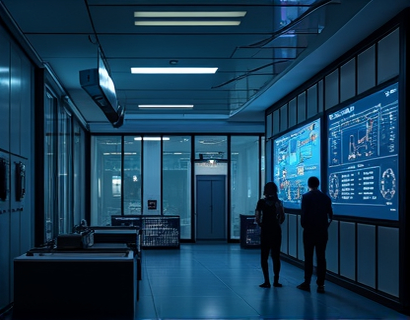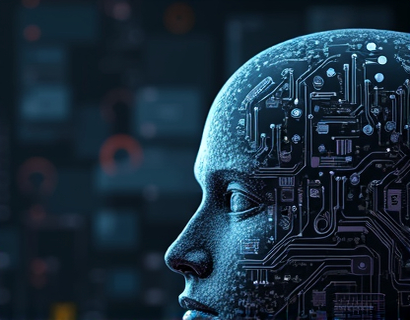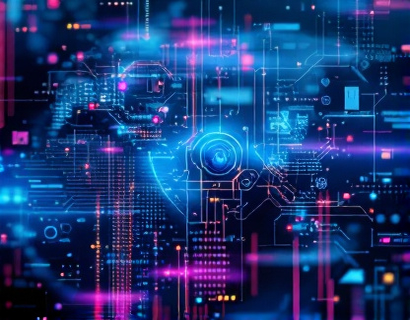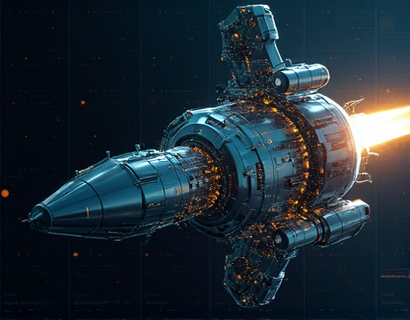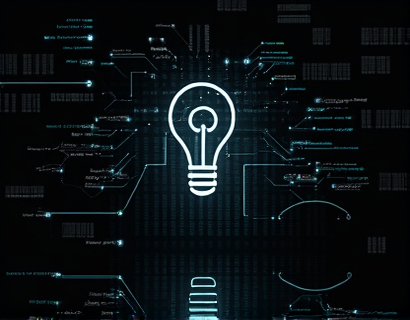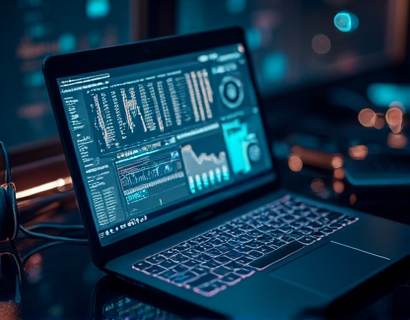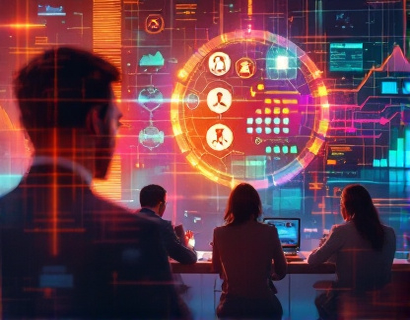Unleashing Advanced Ecosystem Solutions: The Synergy of AI and Crypto for Digital Innovation
The intersection of artificial intelligence (AI) and cryptocurrency is giving rise to a new era of digital innovation, transforming the way we interact with crypto applications and services. This fusion is not just about combining two advanced technologies; it's about creating a synergistic ecosystem that enhances user experiences, security, and efficiency. As we delve into this topic, we will explore the advanced technologies and innovative strategies that are redefining the crypto landscape, providing tech-savvy enthusiasts and innovators with cutting-edge tools to elevate their digital journeys.
The crypto space has always been at the forefront of technological advancements, embracing new ideas and pushing the boundaries of what is possible. The integration of AI into this space is a natural progression, offering solutions that were once thought to be futuristic. AI's ability to process vast amounts of data, learn from patterns, and make predictions is proving invaluable in the realm of cryptocurrency. From enhancing security measures to optimizing trading strategies, AI is revolutionizing the way we approach crypto.
Enhancing Security with AI
One of the most significant challenges in the crypto world is security. The decentralized and transparent nature of blockchain, while a strength, also makes it a prime target for cyberattacks. AI technologies are stepping in to address these vulnerabilities. Machine learning algorithms can detect anomalies and patterns that indicate potential security threats, allowing for proactive measures to be taken. For instance, AI-driven systems can monitor transaction patterns in real-time, identifying suspicious activities and alerting users or automating responses to mitigate risks.
Moreover, AI can improve the security of private keys and wallet management. Traditional methods of storing private keys, such as hardware wallets, can be compromised through various means. AI-powered solutions can enhance the security of these keys by using advanced encryption techniques and biometric authentication. This not only protects user assets but also simplifies the user experience, making crypto more accessible to a broader audience.
Optimizing Trading Strategies with AI
Trading in the crypto market is inherently volatile and complex, requiring constant monitoring and quick decision-making. AI algorithms can analyze vast amounts of market data, including historical prices, trading volumes, and news sentiment, to predict future price movements. These predictions can be used to develop automated trading strategies that execute trades at optimal times, maximizing profits and minimizing losses.
Moreover, AI can help in risk management by providing real-time insights into market conditions. By continuously learning from new data, AI models can adapt their strategies to changing market dynamics, ensuring that traders remain competitive. This level of automation and intelligence is transforming the trading landscape, making it more efficient and less reliant on human intuition alone.
Personalized User Experiences through AI
The crypto ecosystem is vast and diverse, catering to a wide range of users with different needs and preferences. AI can play a crucial role in personalizing these experiences. By analyzing user behavior and preferences, AI systems can recommend crypto applications, services, and content that are most relevant to each individual. This personalized approach not only enhances user satisfaction but also increases engagement and loyalty.
For example, AI can curate a feed of news articles, market analyses, and community discussions based on a user's interests. It can also suggest suitable investment opportunities or educational resources to help users improve their crypto knowledge. This level of personalization is particularly valuable in a space as complex as crypto, where users often feel overwhelmed by the sheer amount of information available.
Smart Contracts and AI: A Powerful Combination
Smart contracts are self-executing contracts with the terms of the agreement directly written into code. They are a cornerstone of blockchain technology, enabling automated and trustless transactions. When combined with AI, smart contracts become even more powerful. AI can enhance the functionality of smart contracts by adding layers of intelligence and adaptability.
For instance, AI can be used to dynamically adjust the parameters of a smart contract based on real-time data. This could be particularly useful in decentralized finance (DeFi) applications, where the terms of a loan or lending agreement might need to be modified in response to changing market conditions. AI-driven smart contracts can ensure that these adjustments are made seamlessly and securely, reducing the need for intermediaries and lowering transaction costs.
Decentralized AI Models: Democratizing Access to Advanced Technologies
Traditionally, access to advanced AI models and the computational resources required to run them has been limited to large corporations and well-funded research institutions. However, the decentralized nature of blockchain and the rise of decentralized AI (DAI) models are changing this landscape. DAI models are trained and run on a distributed network of nodes, making AI capabilities more accessible to a broader audience.
This democratization of AI has significant implications for the crypto ecosystem. It allows developers and users to leverage powerful AI tools without the need for extensive infrastructure. For example, decentralized AI platforms can provide on-demand access to machine learning models for tasks such as fraud detection, market analysis, and personalized recommendations. This not only lowers the barrier to entry but also fosters innovation by enabling more creators to experiment with AI-driven solutions.
Challenges and Considerations
While the integration of AI and crypto offers numerous benefits, it also comes with its own set of challenges. One of the primary concerns is the regulatory environment. As AI and crypto continue to evolve, regulators are grappling with how to address the unique challenges they pose. Ensuring compliance with existing laws while fostering innovation is a delicate balance that requires careful consideration.
Another challenge is the computational resources required for AI models, particularly those based on deep learning. Training these models can be resource-intensive, leading to concerns about energy consumption and environmental impact. The crypto community, known for its focus on sustainability, must find ways to make AI-powered solutions more eco-friendly, perhaps by leveraging renewable energy sources or developing more efficient algorithms.
Future Prospects: The Next Frontier
The synergy between AI and crypto is just beginning to unfold, and the future holds immense potential. As AI technologies continue to advance, we can expect even more sophisticated applications in the crypto space. For instance, the development of AI-driven oracles could enhance the reliability and accuracy of on-chain data, enabling more complex and trustless decentralized applications.
Moreover, the integration of AI with other emerging technologies, such as the Internet of Things (IoT) and 5G, could lead to new use cases and innovations. The combination of these technologies could create smart, interconnected ecosystems where devices and systems communicate and operate seamlessly, further transforming the digital landscape.
In conclusion, the fusion of AI and crypto is not just a technological trend but a fundamental shift in how we approach digital innovation. By leveraging the strengths of both fields, we can create more secure, efficient, and personalized crypto experiences. As we continue to explore this exciting frontier, the possibilities are endless, and the future looks brighter than ever.



